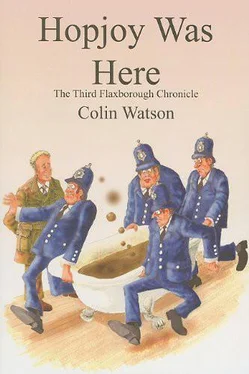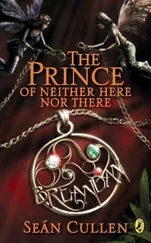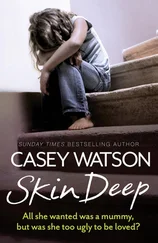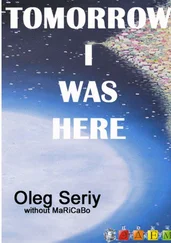Television, Ross discovered when they entered the small, over-furnished parlour, was the source of the music he had heard. As she walked through the doorway, the girl’s eyes sought automatically the steel-blue radiance of the screen in the corner. They slotted at once into focus as though held upon invisible antennae springing in parallel from the set, and abdicated responsibility for all else. Thus, as she felt her way to a couch in the room’s centre, her body moved round pieces of furniture with the cautious, sensitive independence of the blind.
Ross watched the foot that felt for and pushed aside a stool in her path. Its toes, half revealed by the green suede shoe’s shallow cut, squeezed like plump baby mice against their nylon caul. Her instep, he noticed, was gracefully arched but too puffy to display the delicate bone structure that he would claim to have been taught to value by the bagnio-masters of south-eastern Turkey. The ankle was similarly spoiled, yet the failing was its very merit, for it hastened with impatience the upward progress of Ross’s scrutiny to a limb he deemed so eloquent of erotic responsiveness that his fingers involuntarily curved in sympathy. Especially compelling was the flexed roundness of muscle, behind and a little above the knee—the thigh’s beginning—that gleamed momentarily as the couch arm caught at the girl’s skirt.
She arranged herself among the cushions like a florid signature. Ross, for whom she spared no further glance, sat uninvited in a chair a few inches away, his back to the television set.
The girl spoke first, but without turning her head. “Well, what was it you wanted?”
“To talk to you.”
“My husband handles all the farm business. Anyway, you’re wasting your time if you’re selling something; he’s satisfied with everything he gets now.”
“That I can believe.” Ross watched her face. She was smiling faintly.
“Is your husband about?”
“Naturally. You didn’t think he worked in an office. He’s down on the bottom field. Harrowing.”
“It must be.”
The girl suppressed a giggle, then frowned. “I don’t like sarcastic people. If you’ll just tell me what you want...”
“I’m trying to trace a friend of mine.”
“Someone round here, you mean?”
“I think he’s been here.”
“What’s his name?” She leaned along the back of the couch and stretched to turn down the volume of the set. She could just reach the knob with the tips of her fingers. Ross noted appreciatively the hardening of the nearer buttock into the semblance of a lute. “Hopjoy,” he said, “Brian Hopjoy.”
“Never heard of him.” She settled again into the cushions, drawing one leg closely beneath her and allowing the other to trail to the floor. Ross abandoned himself to a familiar sense of wonder at the contrast between a stocking’s steely, slippery containment and the petal-white vulnerability of overtopping flesh. He once had thought the Can-Can a vulgar and pseudo-, indeed anti-sensual concession to callow tourists. Now he understood its truth. It was a sermon upon the insubstantiality of what separated the pretentiousness and artificial properties of civilization from venal reality—a division no greater than a garter’s width.
Ross leaned forward in his chair. “Mrs Croll...”
Abstractedly she felt for her skirt hem and tugged it down to her knee. Her fingers straightened and travelled on, in the lightest self-caress; then she raised the hand and held it towards him. He grasped her wrist and experienced a sort of contentment in exploring, with one finger-tip, its complex of fragile bones.
“You might not have known him as Hopjoy,” Ross said.
“Mightn’t I?” Still she stared at the screen; only the tiniest twitch of the hand Ross held contradicted her attitude of absolute indifference to what existed outside it. He slackened his hand and extended it slowly, her forearm slipping through the cupped fingers until his thumb nestled in the soft, warm hollow of the arm’s crook. A pulse—his own or hers, he did not know—stirred gently within the area of contact; it seemed a microcosmic prelude to...
“Here, we’re wasting time.” He withdrew his hand and reached into an inner pocket.
She looked round, startled by his brusqueness. Immediately she saw the photograph, her eyes widened. “Is that your friend?”
“Tell me about him.”
She pouted. “Why should I? I don’t know who you are. You haven’t even got his name right, anyway.”
Ross saw the look she gave the photograph of Hopjoy; it was compounded of fondness and a curious detachment, like that of a marksman turning over a shot bird with his foot.
“Names,” he said, “don’t matter much in our game, Mrs Croll. I don’t care what you called the man, nor what he meant to you...”
“And just what are you insinuating?” She had put on a tradesmen’s entrance voice. Ross decided that he recognized the dissimulation of the bored middle-class wife, hungering for sexual humiliation. “Your antics in your husband’s hay-loft are rather beside the point, my dear. I am interested solely in what brought Mr Hopjoy to this farm and in what he learned here. Now perhaps we understand each other.”
She had risen at his first words and stood now in what he diagnosed as trembling enjoyment of the insult he had offered. The rigidity of her indignation, he noticed, thrust into satisfying prominence a narrow, muscular belly and slightly flattened breasts like burglar alarms.
Mrs Croll turned, switched off the television set as if for ever, and faced him again. “There is nothing,” she announced coldly, “in the relationship of Mr Trevelyan and I that is any of your damn business.” She paused. “So damn you!”
Ross felt a twinge of pity. The clumsiness and inadequate sonority of the retort, its little grammatical discord, betrayed the girl’s uncertainty. He smiled at her. Into the suddenly silent room threaded the thin, clattering whine of a distant tractor.
“Trevelyan, you say?”
“Howard Trevelyan.” She pronounced the words defiantly and with schoolgirl relish.
“Sit down.” He took out his pipe and ruminantly fingered the rim of its bowl. The girl hesitated, then moved farther off and sat on a straight-backed chair in an attitude of prim exasperation.
Not looking at her, Ross said: “You are going to have to trust me, Bernadette. I could tell you my name—it’s Ross, as a matter of fact—and the nature of my work, but there really would be no point in doing so. I can neither prove my identity nor give you convincing evidence of my profession. If I could, it would cease to be my profession. You don’t understand. Naturally. You are not expected to understand. But at least let me assure you that what might seem to you duplicity and mystification are terribly necessary.”
He glanced at her face, which had become more bewildered than angry. “Don’t worry, you’ll not get hurt. I can see no need for your husband to learn anything you don’t wish him to learn concerning, er, Trevelyan”—he lingered sternly over the name as if he personally disapproved of it—“provided you are frank with me.”
“Are you a detective, or something?”
He considered, smiling again. “A something—I think we’d better settle for that.”
“Are you working with Howard?”
“We have certain objectives in common.”
Mrs Croll looked at the door. Then she crossed the room and settled in her habitual place on the sofa. Her face was turned fully towards Ross. She ran her tongue-tip over her lips before she spoke.
“Has anything happened to him?”
Ross shrugged. “We can’t trace him just at the moment.”
“He’s not back in hospital?”
Ross went quickly back over his mental copy of the Hopjoy reports. There had been a spell in hospital. Attacked with iron bar. Assailant thought to be Bulgarian. Never traced; probably smuggled out of Flaxborough dock. For victim, special compensation grant. But all that was some time ago. “No,” said Ross, “I think he got over that all right.”
Читать дальше

![Fredrik Backman - Britt-Marie Was Here [Britt-Marie var här]](/books/61260/fredrik-backman-britt-marie-was-here-britt-thumb.webp)










